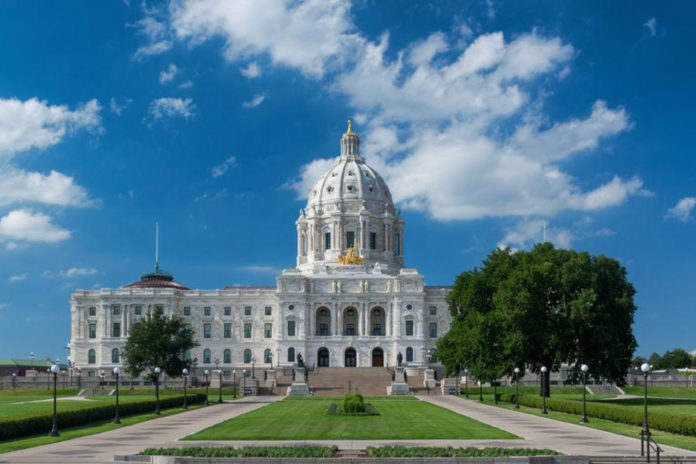(The Center Square) — Gov. Tim Walz’s proposed $52.4 billion budget that aims to hike taxes by $1.6 billion prompted a wide range of companies on Tuesday to both protest and wage support.
The budget aims to pave the way to a COVID-19 recovery.
Walz aims to increase the corporate tax rate for profitable companies from 9.8% to 11.25% starting in 2021 to reap $424 million, which would bump Minnesota to the second-highest corporate rate in the nation behind New Jersey at 10.5%.
Walz proposed a fifth-tier income tax rate for household incomes above $1 million or a single earner bringing in $500,000 or more, which would shift Minnesota from the fifth-highest income tax – 9.85% on taxable income over $164,400 a year — to the third-highest.
Jessica Young, policy manager with the Medical Alley Association, argued the tax hike would hurt the feasibility of companies who want to expand or relocate to Minnesota.
“The significant changes made to both corporate and individual taxes harm competition,” Young said.
About 34,400 C-corporations file corporate franchise tax returns annually in the state.
Beth Kadoun, with the Minnesota Chamber of Commerce, said lawmakers should follow a “do-no-harm” mantra on COVID-19 recovery.
“We strongly oppose the governor’s tax proposals as they impose permanent, uncompetitive tax hikes of nearly $1.9 billion that would fall greatly on private-sector employers while they continue to grapple with the impacts of the COVID-19 pandemic,” Kadoun said.
Kadoun cited a 2018 Federal Reserve study that found for every 1% increase in the corporate tax rate, employment at startup firms declined by 3.7%.
The proposed budget seeks a higher tax rate on capital gains: 1.5% on sales profits between $500,000 and $1 million, and 4% if more than $1 million.
Max Hall of AFSCME Council 5 supported the tax increases and said it would make rich people pay their “fair share” and “expand access to the American Dream.”
The plan calls to raise the cigarette tax from $3.04 per pack to $4.04, tax 35% of the gross retail receipts on nicotine devices, and tax electronic delivery devices at 95% of the wholesale sales price.
The $1/pack tax would skyrocket Minnesota near the highest cigarette taxes in the country below New York and Connecticut, according to Igentax.com.
Dr. Michael Madden, a family physician with over 30 years of public health experience, argued the tax policies would incentivize smoking cigarettes over vaping, the latter which one study found to be at least 95% less harmful than smoking cigarettes.
“While not reducing the risk … to zero, harm reduction substantially increases safety and saves lives,” Madden said.
If enacted, cigarettes would be nearly 50% cheaper than e-cigarette cartridges, Madden said.
Monte Williams, an Altria consultant, said 35% of cigarettes consumed in Minnesota are purchased out-of-state, and this tax increase would increase smuggling from where cigarettes are $3 less per pack.
The tax will land on 15% of Minnesotans, according to the Centers for Disease Control and Prevention, Williams said, who are disproportionately low-income people.
Molly Moilanen with Clearway Minnesota argued hiking nicotine prices would continue causing smokers to quit and urged lawmakers to dedicate a revenue portion larger than the current 1% to smoking cessation programs.
Martha Njolomole, an economist at the conservative Center for the American Experiment, argued corporate tax hikes could push remote workers to lower-tax states.
Njolomole argued that studies show labor bears between 50% and 100% of the corporate tax burden, not companies — so the hike is essentially another income tax hike.
Tax rate hikes don’t appear to drive increases in tax revenues, Njolomole said. For example, Minnesota tax revenues remained at 6.6% of state Gross Domestic Product from 1974 to 2019, although the income tax rate fluctuated between 8.5% in the 1990s and 17% in the 1970s.

















